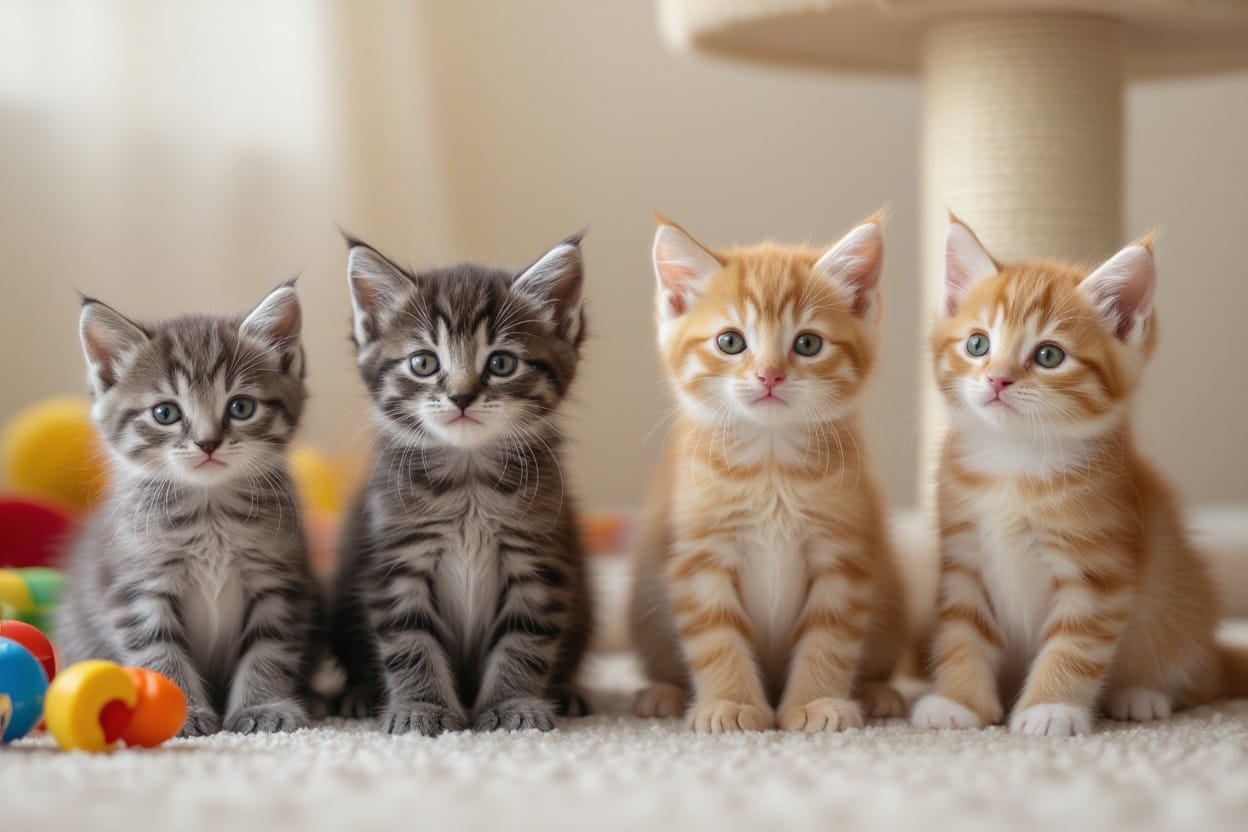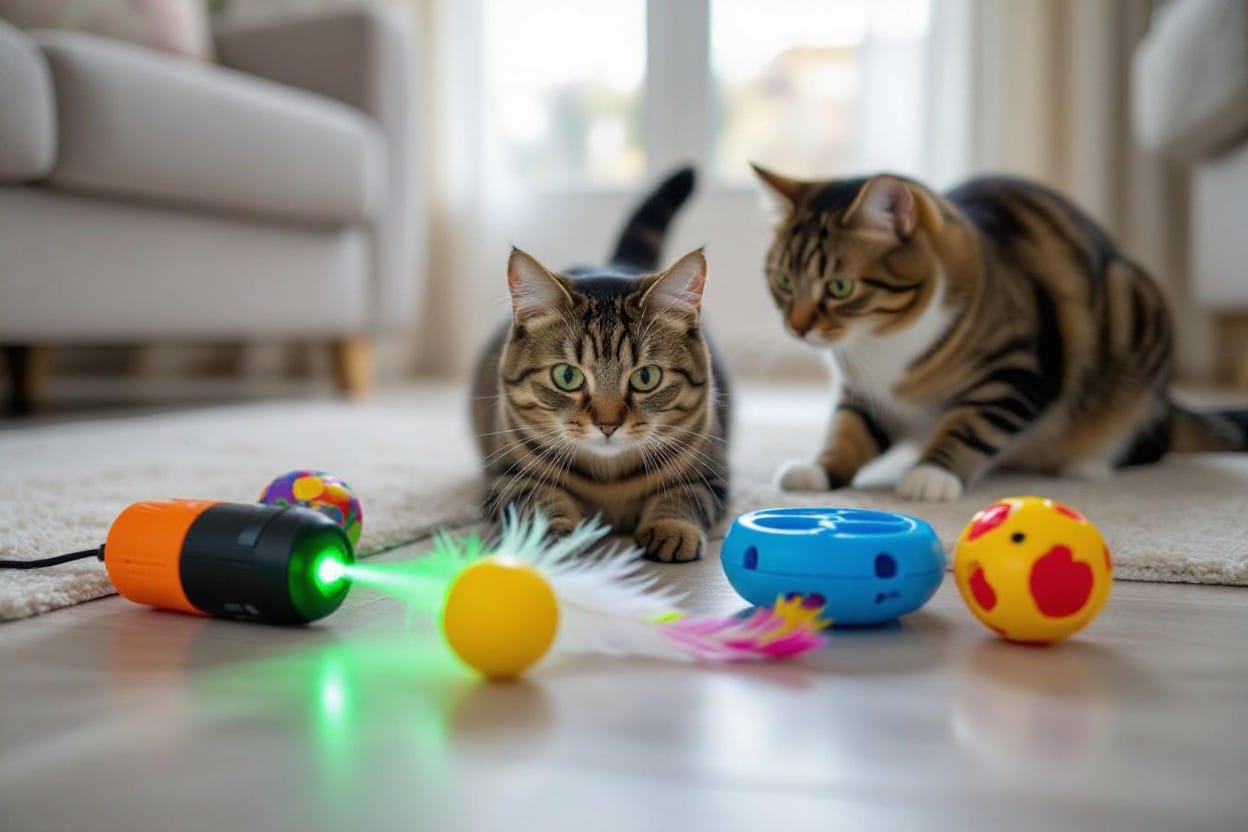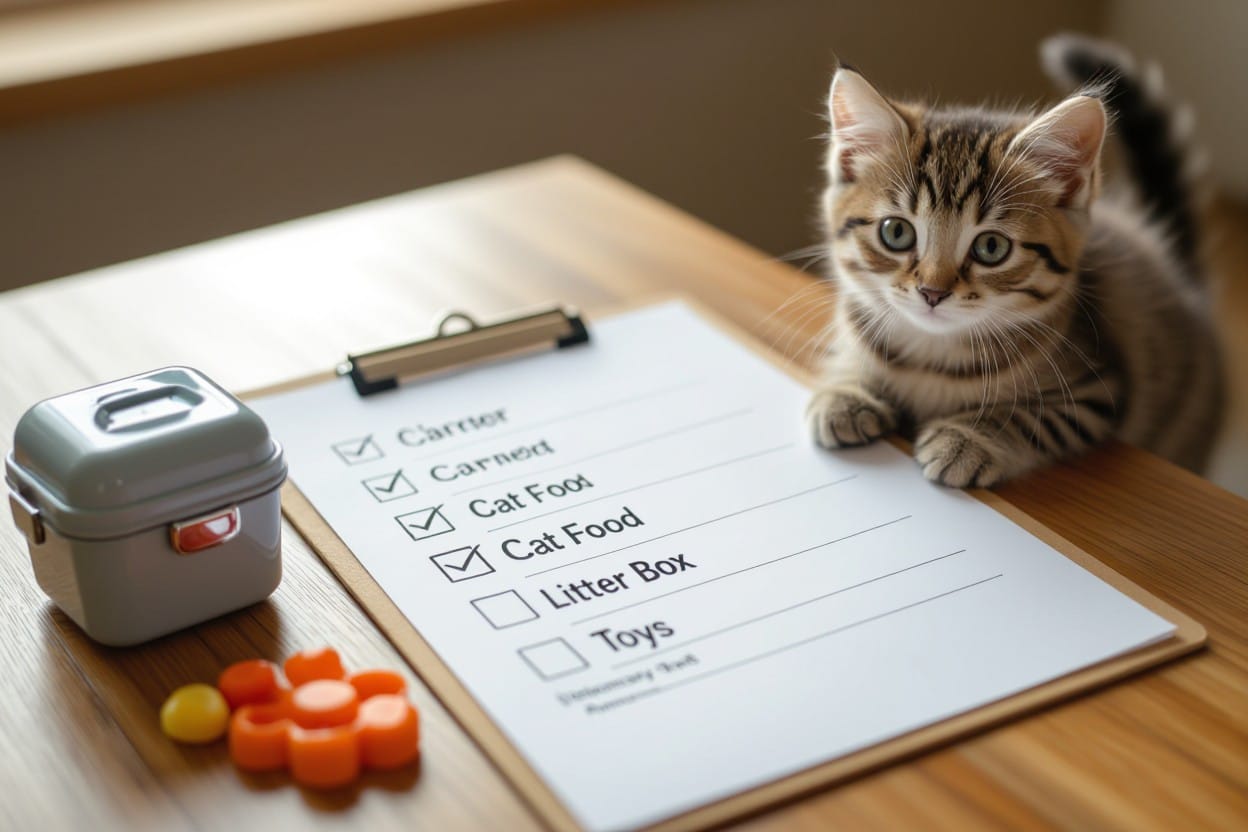Prevention is key when it comes to the health and well-being of outdoor cats. Regular vet check-ups are crucial for monitoring their overall health, addressing any potential issues early on, and ensuring they receive necessary vaccinations and parasite control. Outdoor cats face unique risks from exposure to elements, wildlife, and other animals, making regular check-ups necessary in keeping them healthy and safe.
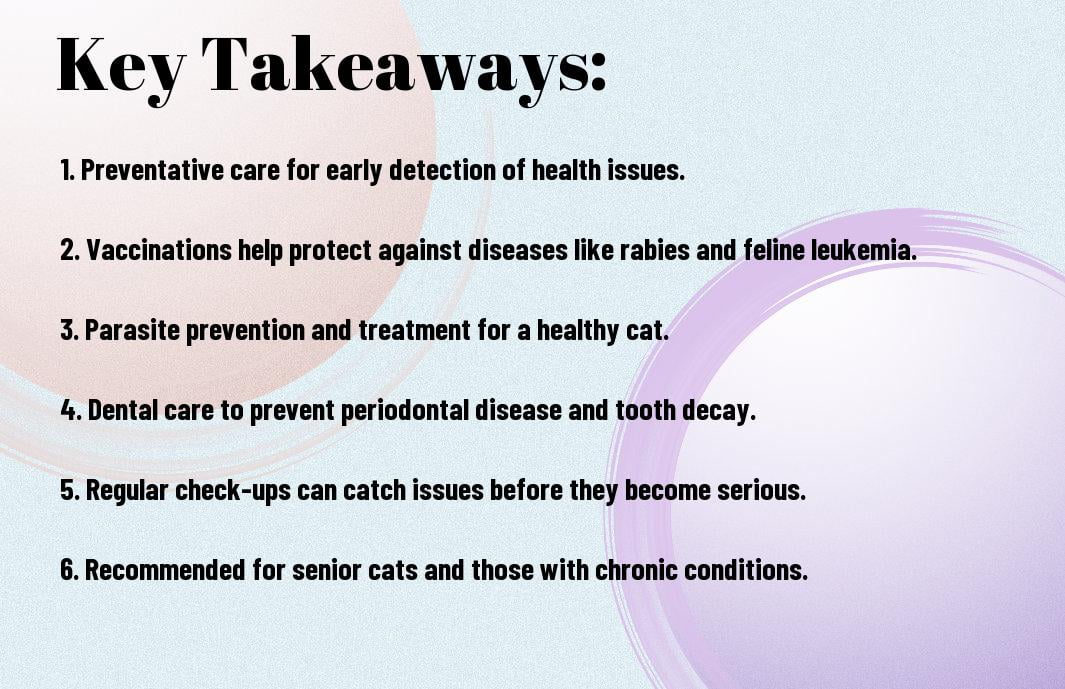
Understanding the Outdoor Cat’s Environment
It is necessary for cat owners to have a thorough understanding of their outdoor cat’s environment in order to ensure their health and safety. Outdoor cats lead a much different lifestyle compared to their indoor counterparts, and being aware of the potential risks they may encounter is crucial.
Common Hazards and Risks for Outdoor Cats
On any given day, outdoor cats are exposed to a variety of hazards and risks that can jeopardize their well-being. These may include encounters with other animals, such as aggressive dogs or wildlife, exposure to toxic plants or substances, and the potential for accidents on busy roads. Additionally, outdoor cats are more susceptible to contracting parasites like fleas and ticks, as well as infectious diseases from other animals they come into contact with in their environment.
The Impact of Seasons and Weather
For outdoor cats, the changing seasons and weather conditions can have a significant impact on their health and safety. Harsh winter temperatures can pose a risk of hypothermia, while hot summer days can lead to dehydration and heatstroke. It is important for cat owners to provide adequate shelter for their outdoor cats during extreme weather conditions and ensure they have access to fresh water and shade to protect them from the elements.
Plus, regular vet check-ups are especially important for outdoor cats to monitor their health and address any issues that may arise from their exposure to different environmental factors throughout the year. By staying informed and proactive, cat owners can help ensure that their outdoor feline companions lead healthy and happy lives.

The Role of Regular Vet Check-Ups in Outdoor Cat Health
Early Detection of Diseases
For outdoor cats, regular vet check-ups play a crucial role in the early detection of diseases. Cats that roam outdoors are exposed to various elements and potential dangers that can compromise their health. Routine check-ups allow veterinarians to assess the overall health of outdoor cats, conduct necessary tests, and identify any underlying conditions before they progress to more serious stages.
Early detection of diseases such as feline leukemia, feline immunodeficiency virus, and certain cancers can significantly improve the prognosis and treatment options for outdoor cats. Through regular vet check-ups, cat owners can ensure that their outdoor feline companions receive timely medical attention and necessary interventions to maintain their well-being.
Parasite Prevention and Control
Prevention and control of parasites are imperative aspects of outdoor cat health that can be effectively managed through regular vet check-ups. Outdoor cats are at a higher risk of encountering parasites such as fleas, ticks, and intestinal worms due to their exposure to the outdoor environment. Veterinarians can recommend appropriate preventive measures such as topical treatments, vaccinations, and deworming medications during routine check-ups to protect outdoor cats from parasites.
Outdoor cats may also be prone to contracting diseases from parasites that can affect their overall health. By staying proactive with parasite prevention and control through regular vet check-ups, cat owners can safeguard their outdoor feline companions from potential health risks associated with parasitic infestations.
Vaccinations and Your Outdoor Cat
Many cat owners with outdoor cats understand the importance of vaccinations to protect their feline friends from various diseases. Vaccines are important to boost your cat’s immune system and prevent them from contracting serious illnesses that are commonly found outdoors.
Core Vaccines for Outdoor Cats
With core vaccines, such as rabies and feline distemper (panleukopenia, herpesvirus, and calicivirus), your outdoor cat will be protected against highly contagious and potentially fatal diseases. These vaccines are considered important for all cats, regardless of their lifestyle, to ensure their overall health and well-being.
Non-Core Vaccines and Lifestyle-Related Recommendations
Vaccines beyond the core ones, such as feline leukemia virus (FeLV) and feline immunodeficiency virus (FIV), may be recommended for outdoor cats that have a higher risk of exposure to these diseases. Lifestyle-related recommendations, such as protecting your cat against ticks, fleas, and heartworm, are also crucial for their safety and longevity.
Cats that spend time outdoors are more susceptible to a range of health risks, including infectious diseases and parasites. By staying up-to-date on vaccinations and following lifestyle-related recommendations, you can help your outdoor cat live a healthier and happier life.
Nutritional Health and Weight Management
Assessing Your Cat’s Dietary Needs
Nutritional health plays a crucial role in the overall well-being of outdoor cats. It is important to assess your cat’s dietary needs regularly to ensure they are receiving the necessary nutrients for their active lifestyle. Outdoor cats tend to have higher energy requirements than indoor cats due to their increased physical activity and exposure to the elements. Consulting with your veterinarian to determine the appropriate balance of protein, fats, carbohydrates, vitamins, and minerals for your outdoor cat is necessary for their health and longevity.
Addressing Obesity and Its Risks
To address obesity in outdoor cats, it is crucial to evaluate their diet, exercise routine, and overall lifestyle. Obesity in cats can lead to serious health issues, such as diabetes, heart disease, joint problems, and a shortened lifespan. By working with your veterinarian to create a tailored weight management plan, you can help your outdoor cat achieve and maintain a healthy weight. This plan may include adjusting their diet, increasing their exercise levels, and monitoring their progress regularly.
Obesity is a common issue among outdoor cats, as they may have access to more food sources and fewer restrictions on their movement compared to indoor cats. It is important for cat owners to be proactive in managing their outdoor cat’s weight to prevent obesity-related health problems. By keeping a close eye on your cat’s body condition and working with your veterinarian, you can take steps to ensure a healthier and happier life for your outdoor feline companion.
Dental Care for Outdoor Cats
Common Dental Issues and Their Prevention
On average, outdoor cats are more prone to dental issues than indoor cats due to their exposure to various elements and potential lack of regular dental care. Common dental issues in outdoor cats include periodontal disease, tooth decay, and oral infections. To prevent these issues, it’s important to provide your outdoor cat with proper dental care, including regular teeth cleanings and check-ups.
The Importance of Professional Dental Check-Ups
One of the most critical aspects of maintaining good dental health in outdoor cats is regular professional dental check-ups. Veterinarians can assess your cat’s oral health, identify any potential issues early on, and provide necessary treatments. These check-ups also allow for professional cleanings, which are crucial for preventing the build-up of plaque and tartar that can lead to more severe dental problems down the line.
Common signs that your outdoor cat may need a dental check-up include bad breath, difficulty eating, drooling, pawing at the mouth, and swollen gums. It’s vital not to overlook these symptoms and schedule a dental check-up as soon as possible to ensure your cat’s continued oral health.
Behavioral Health and Well-being
Stress and Anxiety in Outdoor Cats
Despite their adventurous nature, outdoor cats are not immune to experiencing stress and anxiety. The exposure to unfamiliar sights, sounds, and animals can trigger these emotions in outdoor cats. This can lead to behavioral issues such as aggression, withdrawal, or destructive behaviors.
The Importance of Mental Stimulation and Environmental Enrichment
The mental health of outdoor cats is just as important as their physical health. Providing mental stimulation and environmental enrichment can greatly improve their well-being. This includes interactive toys, scratching posts, climbing structures, and safe outdoor spaces for exploration.
Understanding the needs of outdoor cats and addressing their mental health is vital for their overall happiness and quality of life. By creating a stimulating environment, outdoor cats can thrive and exhibit more natural behaviors, leading to a healthier and happier companion.
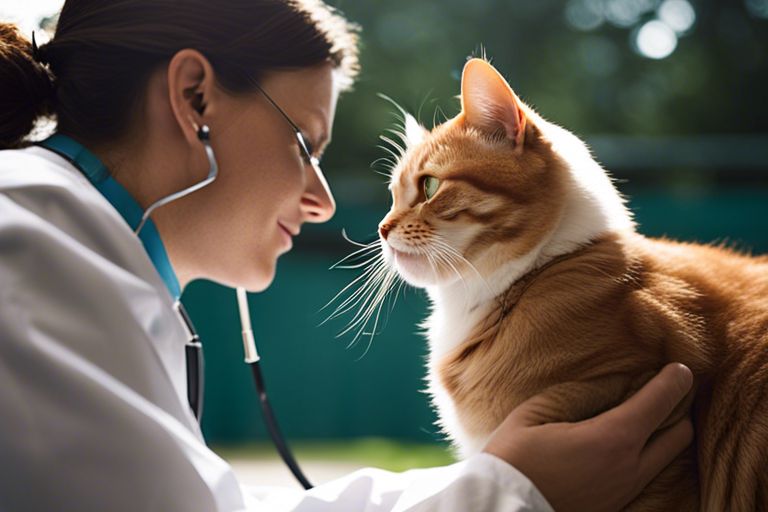
The Importance of Spaying/Neutering
Now, let’s explore into the importance of spaying/neutering outdoor cats. This simple procedure not only benefits the individual cat but also plays a vital role in controlling the population of stray and feral cats in our communities.
Population Control and Its Benefits
Population control is a crucial aspect of responsible pet ownership, especially for outdoor cats. By spaying or neutering these cats, we can prevent unwanted litters and help curb the exponential growth of stray and feral cat populations. This, in turn, reduces the strain on animal shelters and minimizes the impact on local wildlife and ecosystems.
Health Advantages of Spaying/Neutering for Outdoor Cats
Control of population aside, spaying/neutering offers significant health advantages for outdoor cats. Spayed females have a reduced risk of uterine infections and mammary tumors, while neutered males are less likely to roam, fight, and be at risk for testicular cancer. This simple procedure can also help decrease the chances of certain reproductive cancers and behavioral issues, ultimately leading to a longer and healthier life for outdoor cats.
The
It’s important to consult with your veterinarian to discuss the optimal time for spaying/neutering your outdoor cat. Early intervention is key to reaping the full benefits of this procedure and ensuring the well-being of your feline companion.
Preparing for the Vet Visit
Not all cats enjoy a trip to the vet, especially outdoor cats who are accustomed to their freedom and might feel stressed in unfamiliar environments. However, regular vet check-ups are crucial for maintaining your outdoor cat’s health and addressing any issues before they escalate. By taking some key steps in advance, you can help ensure a smooth vet visit for your feline friend.
Ensuring a Stress-Free Experience for Your Cat
Preparing your outdoor cat for a visit to the vet starts with getting them comfortable with their carrier. Leave the carrier out in a familiar area weeks before the visit, letting your cat explore and even nap inside it. You can also use pheromone sprays or treats to create a positive association with the carrier. On the day of the visit, try to keep your cat calm by using a towel sprayed with soothing pheromones over the carrier during transportation.
What to Bring and What to Expect
One important item to bring to the vet visit is your cat’s medical history, including any previous vaccinations, treatments, or health concerns. Ensure your cat is securely fastened in their carrier and bring along a favorite toy or blanket to provide them with comfort during the visit. Once at the vet’s office, expect a thorough examination, including checks for parasites, vaccinations, and discussions about preventive care. Be prepared to ask any questions you may have about your cat’s health and to follow any recommendations given by the vet to keep your outdoor cat healthy and happy.
To wrap up
From above, it is clear that regular vet check-ups are crucial for outdoor cats to ensure they stay healthy and prevent potential health issues. By monitoring their overall well-being, addressing any concerns promptly, and staying up to date on vaccinations and preventatives, outdoor cats can enjoy a long and fulfilling life. It is important for cat owners to prioritize their pets’ health by scheduling regular check-ups with their veterinarian.
Keep in mind, outdoor cats are exposed to various risks and hazards that can impact their health, so proactive measures such as regular check-ups can help detect and prevent potential issues. By working closely with a veterinarian, cat owners can provide the best care for their outdoor feline companions and ensure they lead a happy and healthy life.
FAQ
Q: Why are regular vet check-ups important for outdoor cats?
A: Regular vet check-ups are imperative for outdoor cats because they are exposed to more risks and health hazards compared to indoor cats. These check-ups help in early detection of any potential health issues, ensuring prompt treatment and prevention.
Q: How often should outdoor cats visit the vet?
A: Outdoor cats should ideally visit the vet at least once a year for a comprehensive check-up. However, older cats or those with pre-existing conditions may require more frequent visits as recommended by the vet.
Q: What are some common health problems outdoor cats may face?
A: Outdoor cats are more prone to fleas, ticks, parasites, injuries from fights, and exposure to diseases. They may also suffer from sunburn, heatstroke, and poisoning from ingesting toxic substances outdoors.
Q: How can regular vet check-ups benefit outdoor cats?
A: Regular vet check-ups can benefit outdoor cats by monitoring their overall health, providing necessary vaccinations, deworming, and flea/tick prevention. These check-ups also help in maintaining their optimal weight and addressing any behavioral issues.
Q: What can pet owners do to ensure the well-being of their outdoor cats between vet visits?
A: Pet owners can ensure the well-being of their outdoor cats by providing a safe and enriched outdoor environment, feeding them a balanced diet, providing fresh water, and monitoring their behavior and health regularly. Regular grooming and keeping up with preventive medications are also important for their well-being.


